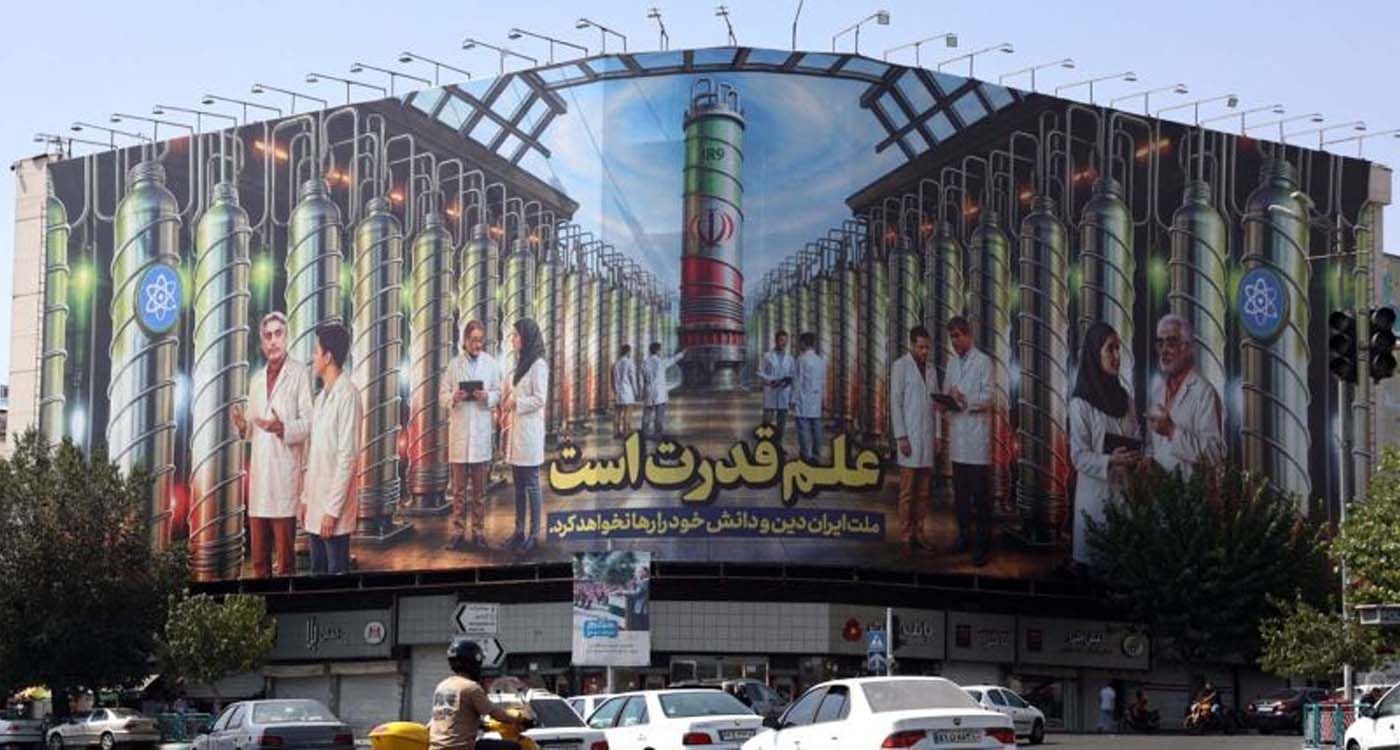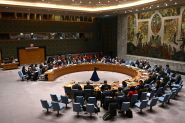- Home
- Middle East
- At the UN, the Snapback Reshuffles the Iranian File

©AFP
At the end of August, the United Kingdom, France and Germany (the E3) officially triggered the snapback mechanism outlined in UN Security Council Resolution 2231, which governs the 2015 Iranian nuclear deal (the Joint Comprehensive Plan of Action, or JCPOA). This unprecedented procedure in the multilateral system stipulates that all previous UN sanctions against Iran are automatically reinstated within thirty days, unless the Security Council adopts a resolution to prevent it. In effect, the usual logic is reversed. A single veto from a permanent council member can block the continuation of sanctions relief.
An Exceptional Legal Mechanism
Introduced in 2015, the snapback was designed as a safeguard against any Iranian violation of the JCPOA. The principle was straightforward. In the event of “significant non-compliance,” any participating state could bring the matter to the Security Council. If no resolution to maintain sanctions relief was adopted within thirty days, all prior UN sanctions would automatically come back into force.
This reinstatement includes the arms embargo, prohibitions on missile and drone-related transfers, and broad financial and banking restrictions. According to the Atlantic Council, the E3’s decision to trigger the snapback was driven by a narrow “window of opportunity.” After October 18, known as “Termination Day,” the mechanism would expire. After that date, reimposing sanctions would require a new Security Council resolution, which could be blocked by Russian or Chinese vetoes.
Europe in a Hurry
For the Middle East Institute, the European decision reflects a “race against time.” The legal countdown made action in August necessary, and the upcoming Russian presidency of the Security Council in October would have complicated any initiative. By aligning with Washington, the E3 also aims to close transatlantic gaps that Tehran has often exploited.
This marks a hardening of European policy. During the summer, Europe had proposed a six-month extension of the mechanism to Iran, contingent on the resumption of IAEA inspections and transparency over enriched uranium stocks. Tehran refused, arguing that Europe, unable to guarantee the economic benefits of the JCPOA after the US withdrawal in 2018, was no longer in a position to demand concessions.
Iran’s Response
Iran’s rhetoric hardened immediately. Some officials, including Foreign Minister Abbas Araghchi, described the snapback as a “military aggression” and even threatened to withdraw from the Non-Proliferation Treaty (NPT).
The Carnegie Endowment notes that while such a withdrawal would have limited technical impact, since Tehran is already restricting inspectors’ access, the political consequences could be severe. This could undermine the multilateral framework and fuel calls for preventive military action. The Washington Institute adds that Tehran’s strong opposition could also pave the way for a gradual reduction in cooperation with the IAEA. Other analysts, cited by the Foundation for Defense of Democracies, warn of more dramatic threats, including closing the Strait of Hormuz or widening the regional conflict.
Primarily a Political Impact
Economically, the effectiveness of the snapback is uncertain. Most Iranian trade already flows through parallel channels and relies heavily on China, which is unlikely to fully enforce sanctions. The Middle East Institute notes that Iranian oil exports to Beijing reached record levels in Summer 2025. The Washington Institute observes that the immediate impact is therefore likely to be more symbolic than material. This includes a weakening of the currency, heightened feelings of encirclement and potential justification for Israeli or US preventive strikes.
According to the Wall Street Journal, the central challenge now is less the reinstatement of sanctions than their enforcement. Without a UN committee to monitor compliance, which Moscow and Beijing would block, Europeans and Americans will need to coordinate diplomatically, explain the mechanism to third countries and penalize any attempts to circumvent it.
The situation is highly volatile. Israeli and US strikes in June on Iranian nuclear sites have already turned a shadow war into open confrontation. If the snapback is maintained at the end of September, Iran could respond with new restrictions or even withdraw from the NPT. As the Carnegie Endowment warns, this would sharply increase the risk of military escalation. Conversely, allowing the mechanism to expire would strip the Security Council of its last multilateral leverage, reducing the Iranian nuclear issue to a direct standoff between global powers.
Read more




Comments